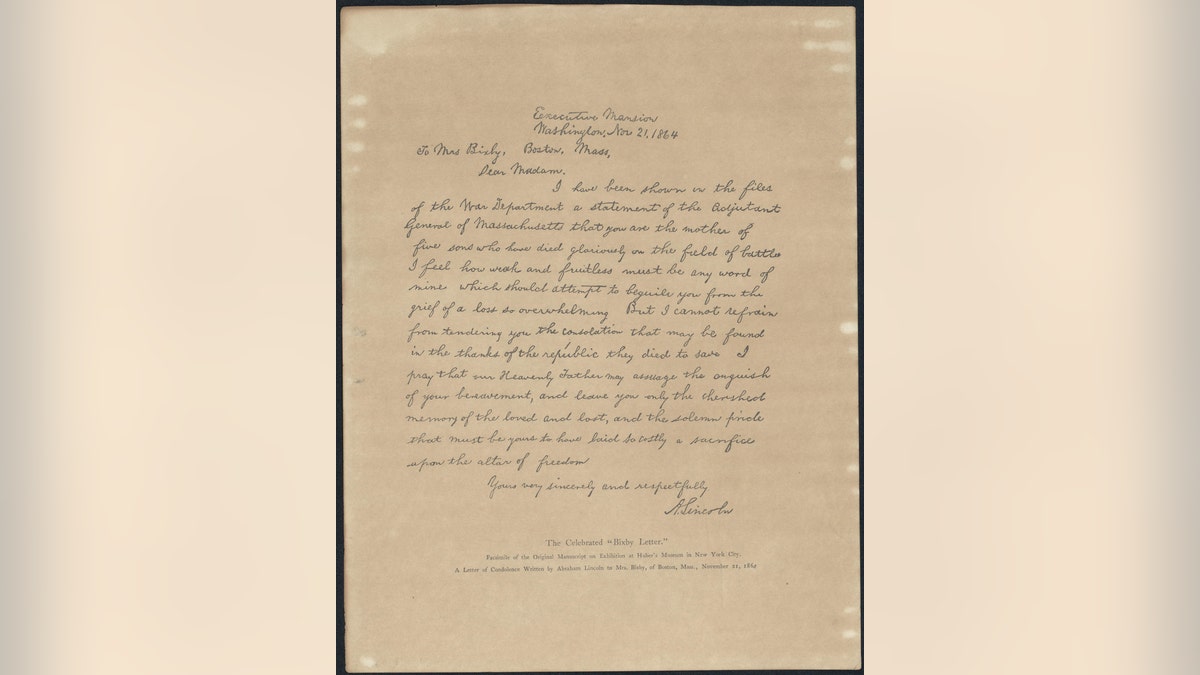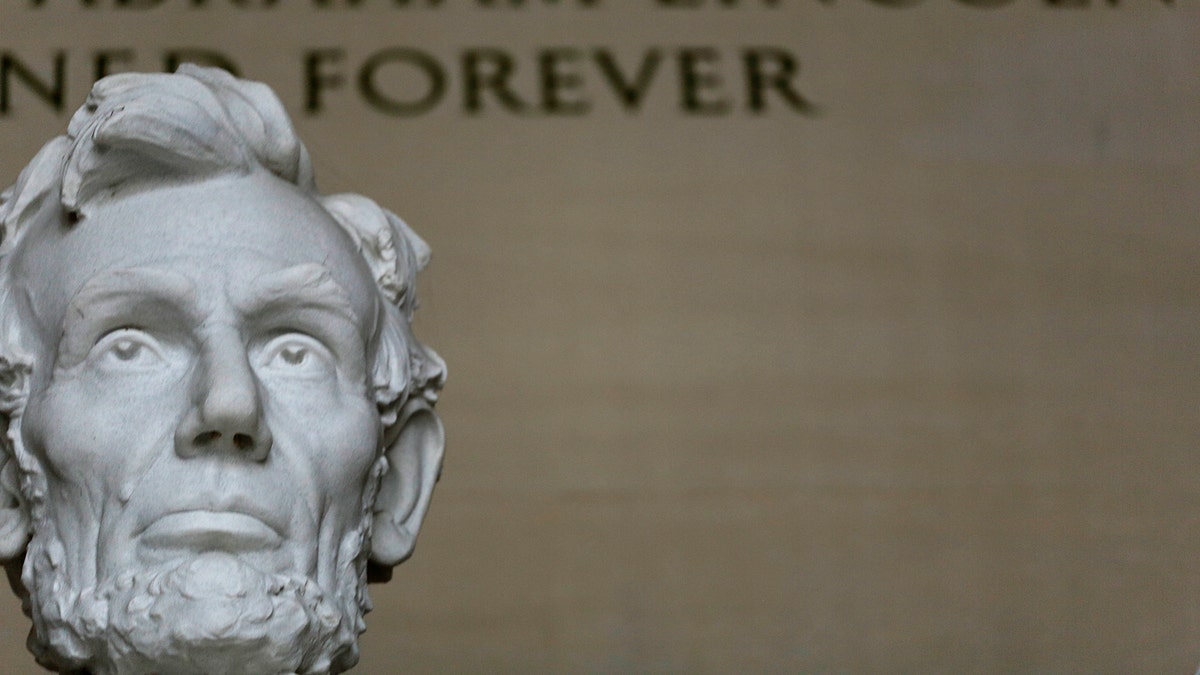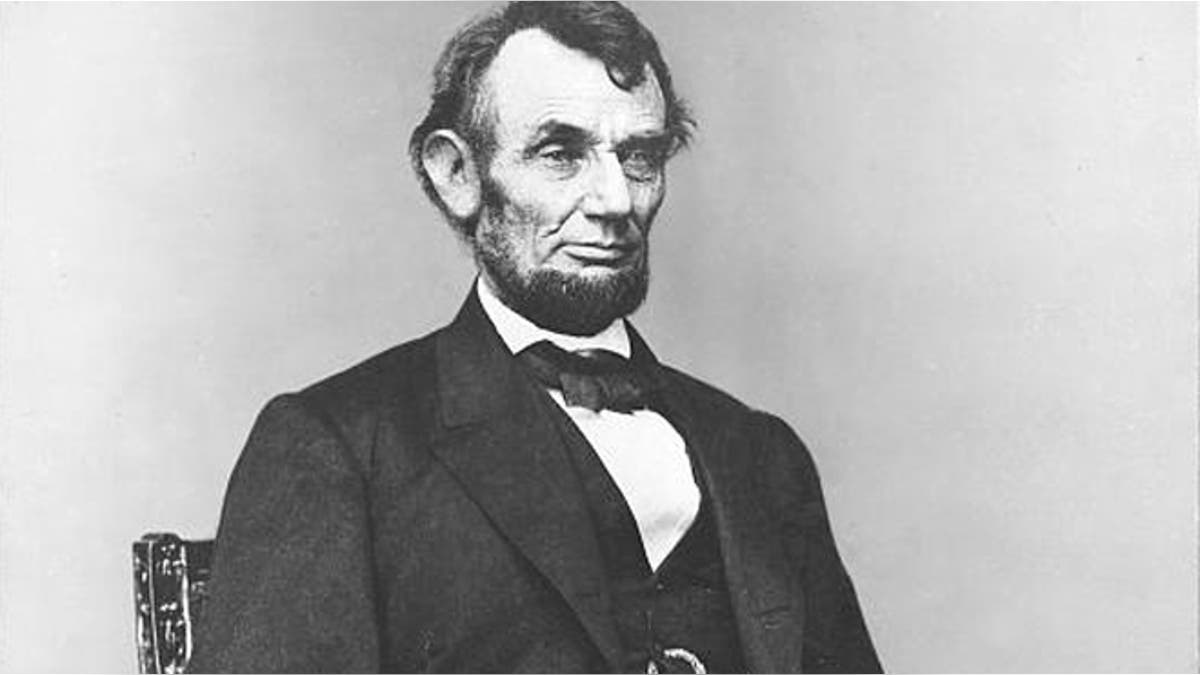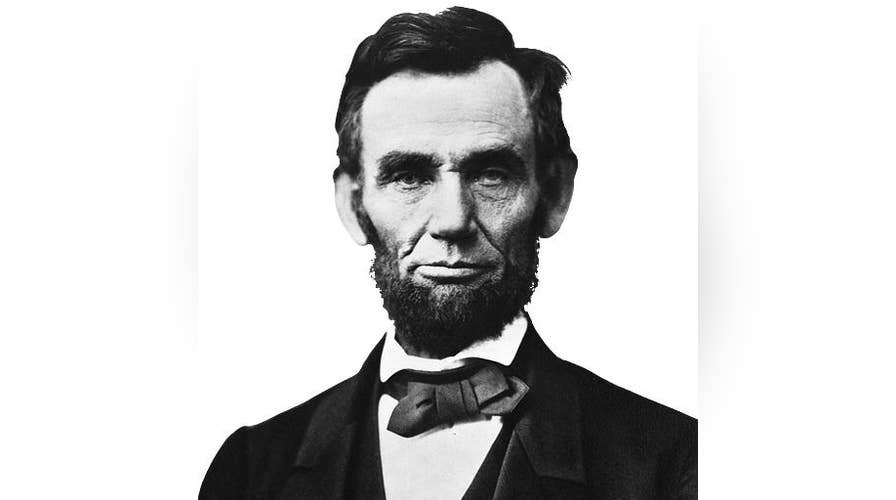Abraham Lincoln mystery solved by enhanced tech
Researchers in the UK use enhanced 'N-Gram Tracing' to solve a longstanding mystery over a letter written during the Civil War
Forensic linguists say they have likely unraveled the mystery surrounding a famous Civil War-era letter, long believed to have been written by President Abraham Lincoln.
Historians have argued for years about the famed 1864 "Bixby letter" that was sent to Lydia Bixby, a mother in Boston grieving the loss of her five sons in the war. The beautifully-written letter was signed A. Lincoln, although it has been suggested that the note was actually written by John Hay, Lincoln’s secretary.
While facsimiles of the letter are in existence, the original has been missing for over 100 years, making it even harder to work out the letter’s true authorship.
TIME CAPSULE FOUND INSIDE CONFEDERATE MONUMENT
Now, researchers at the University of Manchester and Aston University in the U.K. have deployed cutting-edge technology in an attempt to find out who actually wrote the letter. Harnessing a technique called N-gram tracing that searches for linguistic sequences, the team developed a series of computer programs to analyze hundreds of texts from Lincoln and Hay.

A copy of the "Bixby letter" - (The Alfred Whital Stern Collection of Lincolniana, Rare Book And Special Collections Division, Library of Congress)
“It’s a new method to analyze very short texts, which is something that has been a problem in forensic linguistics and linguistics in general,” Dr. Andrea Nini, lecturer in English language and linguistics, told Fox News. Nini explained that, for longer texts, data can be compiled on the frequency with which certain words are used. For the Bixby letter, however, the team analyzed the words used and checked for the absence of words found in other writing by Lincoln and Hay.
Researchers at Aston University’s Centre for Forensic Linguistics tested 500 texts by Hay and 500 by Lincoln, before drawing the conclusion that the Bixby letter was written by the President’s secretary.
FROM ROYAL STATUE TO REVOLUTIONARY WAR BATTLE: THE AMAZING JOURNEY OF 'MELTED MAJESTY' MUSKET BALL
“Most of what we see in the Bixby letter is found in the writing of Hay, but not in Lincoln,” Nini said. In nearly 90 percent of the results, Hay was identified as the author of the letter. The remaining 10 percent of results were inconclusive.

File photo - Former U.S. President Abraham Lincoln's statue at the Lincoln Memorial is seen in Washington March 27, 2015. (REUTERS/Gary Cameron)
Hay was an accomplished writer who wrote a biography of Lincoln and later became ambassador to the United Kingdom.
The forensic linguists have submitted a paper based on their research to the journal Digital Scholarship in the Humanities.
A GLIMPSE INTO HISTORY: PHOTO OF YOUNG HARRIET TUBMAN SURFACES
The letter is widely acknowledged as one of the best examples of American presidential prose. “I feel how weak and fruitless must be any word of mine which should attempt to beguile you from the grief of a loss so overwhelming,” the letter noted. “But I cannot refrain from tendering you the consolation that may be found in the thanks of the republic they died to save.”

President Abraham Lincoln. (Library of Congress)
There was renewed interest in the Bixby letter after it was read in the 1998 film "Saving Private Ryan." It also sparked a new round of debate centering on Lincoln's authorship and the fate of Bixby's sons. Evidence indicates two of Bixby's sons died, a third was a deserter and a fourth ended up in a prisoner-of-war camp, the Associated Press reported in 2008. A fifth is believed to have received a discharge, but his fate is unknown.
SUNKEN REMAINS OF WWII SOLDIERS MAY COME HOME
This is not the first time that technology been used to find an author’s identity. High-tech forensic linguistics was also used in 2013 to reveal that Robert Galbraith – the author of detective story “The Cuckoo’s Calling”- was a pseudonym for Harry Potter author JK Rowling.
Nini told Fox News that he is using technology to solve another mystery – analyzing letters supposedly written by Jack the Ripper.
“I am applying a similar method to the letters in the Jack the Ripper case,” he said, explaining that he is studying more than 200 letters related to the case. “This is the first forensic analysis of those letters.”
The results the research will be released in a couple of months, according to Nini.
The Associated Press contributed to this article.
Follow James Rogers on Twitter @jamesjrogers









































